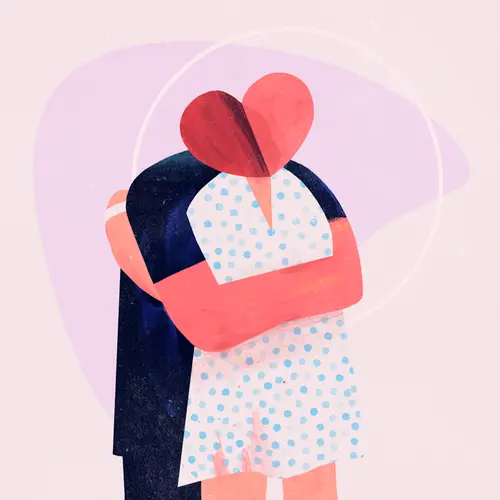Taking care of your mind and body while healing from early-stage breast cancer gives you the energy you need to fight and boosts your overall health. Here are a few ways you can set yourself up for success.
Watch What You Eat and Drink
Healthy foods strengthen your body. There’s no special diet for people living with cancer, just the same foods we should all eat, like:
Fruits and veggies. Aim to eat 2 1/2 cups or more each day. Mix it up with dark green, red, and orange vegetables.
Whole grains. Look for bread, cereal, and brown rice that has 100% whole grain.
Fat. Stick with foods that have unsaturated fats like nuts, nut butter, avocado, and olive oil.
Things to eat and drink less of include red and processed meat, drinks sweetened with sugar, processed foods, and alcohol.
Remember also to get enough water. It’s especially important if you have trouble keeping food down during cancer treatment. Or if you’ve lost water from sweating, fever, or diarrhea. If you find water too bland, try:
- Herbal tea
- Fruit juice mixed with water
- Fat-free soy milk
Try to drink at least 8 to 10 glasses of liquid a day. Avoid alcohol, black tea, and soda with caffeine since they can trigger dehydration.
Keep It Moving
Research shows your chances of living longer after a cancer diagnosis go up when you’re active. And you only need a moderate amount of exercise to see the benefits like a boost in energy and mood, along with less stress and anxiety.
Activities that count as moderate exercise include:
- Gardening
- Walking
- Dancing
Try swimming, playing tennis, or jogging to get your heart pumping even more. Experts suggest 150 minutes of exercise a week. That 30 minutes a day, 5 days a week. You can also include strength training two or more times a week. Be sure to ask your doctor what’s safe.
Manage Fatigue
Most people have fatigue at some point during breast cancer treatment. You’ll feel worn down, even after a good night’s sleep. That tiredness sometimes sticks around after you’ve finished treatment. Tips for managing fatigue include:
Stay active. Exercise may be the last thing on your mind. But it can help you feel better. Ease into it with 15 minutes of exercise and slowly build up to an hour or more.
Get nutrients. Be sure to get enough protein, vitamins, minerals, and overall calories. Talk to your health care provider or a nutritionist about what you may need.
Practice good sleep hygiene. Make a habit of going to sleep and waking up at the same time every day. Short naps are fine. Just try to keep them to around 30 minutes.
Plan your day. Reserve important tasks for when you feel your best and do a little at a time.
Reach Out for Support
A big part of caring for yourself when you have cancer is asking for help when you need it.
Friends and family
Talk to your family and friends and let them how they can lend a hand. It could be a ride to a doctor’s appointment, grocery shopping, child care, or just someone to talk to.
Support groups
It may also help to talk to others who are on a similar cancer journey. Support groups are also a great resource for ideas on managing cancer and sharing your feelings and concerns. Look for a group that best fits your needs. It could be one for people living with breast cancer or any kind of cancer. There are also treatment-focused groups, along with ones for certain age groups or sex.
Counseling
If feelings about your cancer diagnosis impact your day-to-day life, think about talking to a mental health professional. Their job is to help you get to the root of your concerns and help you learn how to handle the changes cancer can bring. Your health care team may be able to suggest someone who’s worked with people with cancer.

